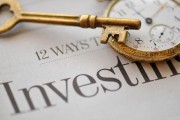
The Double-Trouble with Market Timing
Posted on 16. Jan, 2012 by TheFreeInvestor in General, Investing Philosophy, Portfolio
It is difficult enough to be right about timing the market once that the thought of being right about timing the market twice in a short span seems like a herculean task. Consider this — if you would have sold all your stock holdings in mid 2008 and bought them back in March 2009, not only you would have avoided the financial crisis and resulting crash, you would have made a bundle with the sharp rebound of the US equity market in last couple of years since the crash of 2008. But, those moves look easy only in rear view mirror. The trouble of timing the market is compounded exponentially by the problem of getting the timing right twice — once to get out and next to get back in.
I am not good at timing the market. Forget about getting it right twice, I can’t get the timing right for even once. Throughout the crisis of 2008-09, I sat tight watching the drama unfold. With the exception of buying a small position in Berkshire Hathaway (BRK.B), I did not buy or sell any stock from the Lehman bankruptcy all the way up to December 2009. Despite that portfolio inactivity, my portfolio performance in 2009 and 2010 were two best years in my investing life.
So, instead of trying to be right twice, it is better to avoid the market timing game altogether. Instead, our time is better utilized in finding and owning stocks of high quality companies and continue to learn more about their businesses.
Resist the “Action Bias”
One of my professors used to emphasize the benefits of “Dynamic Inactivity” — a typical process for venture capitalists where the partners explore investment opportunities actively for months/ years without rushing to commitment. Similarly, the key to investing success is not getting the perfect timing, but to resist the urge to do something, action-bias, in the face of high volatility. Successful investors like Warren Buffet have said that temperament and discipline are important ingredients for long term superior performance. I will admit that it is very agonizing to do nothing while the portfolio drops by 40%-50% in value. But, if you have chosen stocks in your portfolio with utmost care and analysis, unless the businesses have fundamentally changed for worse, it helps to sit tight knowing that the companies will bounce back in long term.
So, avoid the double-trouble of market timing and instead focus on finding high quality companies selling at cheap prices. That’s what I am going to continue to do.
(Disclosure: As of the publication of this post, I hold long position in BRK.B. Please read the full disclaimer on this website.)



